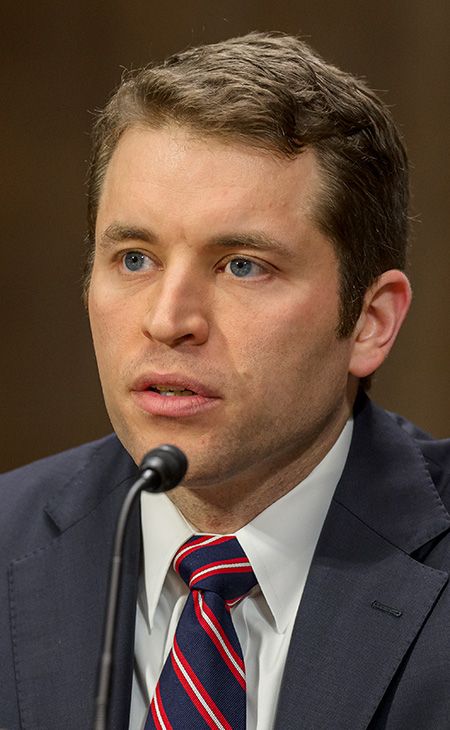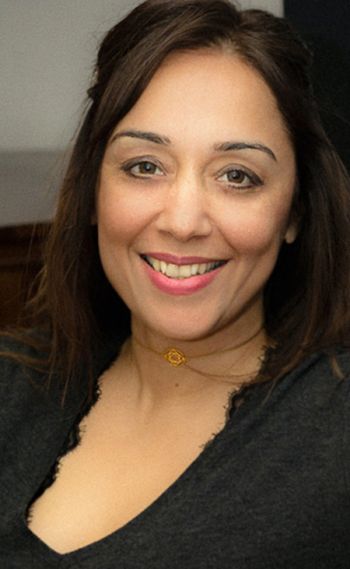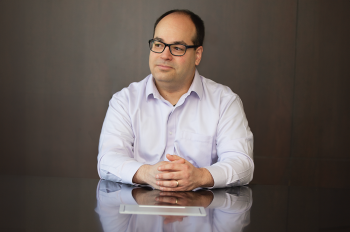Prepared for the Courtroom: Chicago-Kent Alum Begins Serving as Federal Judge

United States District Court Judge, Eastern District of Michigan
Judge Robert J. White '10 was recently put on the bench after being nominated by President Joe Biden. Before all the pomp and circumstance, he was a student at Chicago-Kent College of Law.
“Chicago-Kent College of Law quite literally put me in a courtroom, and because of Chicago-Kent alums such as the Hon. Ralph E. Meczyk, I never left,” says Robert J. White ’10.
White was recently confirmed to serve as a United States District Court Judge in the Eastern District of Michigan. Before he took to the bench, he spent a decade prosecuting organized crime as an assistant U.S. attorney with the Department of Justice, where he earned numerous accolades. He was named Prosecutor of the Year by the El Paso Bar Association in 2017 and by Homeland Security Investigations in 2023. He also received the Federal Bureau of Investigation Recognition for Outstanding Work in 2018 and the Counsel of the Inspectors General Award for Excellence in 2020.
Before being nominated for the judgeship by President Joe Biden, and before the awards, White was a University of Michigan graduate looking for the law school that would help him become an ace litigator. Chicago-Kent stood out as the obvious choice.
“I wanted a law school that would prepare me for the courtroom,” he says. “I visited during a program for admitted students, and it was clear that Chicago-Kent had a defined path for would-be litigators.”
White took advantage of every opportunity that he could at Chicago-Kent. He appreciated the emphasis on legal writing and the clinical opportunities, particularly the criminal law clinic and its supervisor at the time, former Clinical Professor Daniel Coyne.
“Professor Daniel Coyne didn’t just mentor me throughout law school—I’ve been fortunate enough to call on him for guidance and advice throughout my legal career,” says White. “I first met him as a student under his supervision in the criminal law clinic and thought, ‘That is the kind of lawyer I want to be.’”
“Professor Coyne embodied the highest ideals of public service,” White continues. “He is a military veteran who served in Vietnam, a defense attorney who tried high-profile and complex cases, and a member of the legal community who understood the obligation of every lawyer to mentor new attorneys and engage in significant pro bono work.”
In addition to the criminal law clinic, White still vividly remembers his trial advocacy courses with the late U.S. Magistrate Judge Daniel G. Martin, who he has tried to emulate throughout his career.
“They didn’t even take place in classrooms. Always in a courtroom. All the time,” he says. “Judge Martin was a great lawyer, and an even better person. In his advocacy course, we never just went through the motions. We worked until we got something right.”
Upon graduation, he pulled on Chicago-Kent’s resources: this time, its alumni network, to land his first job as an associate attorney at Ralph E. Meczyk & Associates. He worked closely with Meczyk ’77 and Darryl Goldberg ’03, whom he met while arguing a case for Coyne’s criminal law clinic.
“By that time, Professor Coyne trusted me to litigate the entire motion as a student: draft the briefs, prepare for the hearing, examine and cross-examine witnesses, and ultimately argue legal issues,” he says. “Fortunately for my career prospects, we prevailed on the motion to suppress that day.”
Meczyk and Goldberg were at the courthouse to argue a completely different case, but still took the time to give White feedback after his hearing. They hired him out of law school, and White spent four years working under their guidance.
“Without question, the most important advice I could give to any new lawyer is to find someone committed to mentoring you,” says White. “They didn’t just assign me work, although there was plenty of that. They invested in me.”
Although he’s made his home in Michigan, he’ll never forget the importance of studying in Chicago’s robust legal market.
“If you know you want to spend your career in the courtroom, I can’t emphasize enough the benefits to going to law school in a place in proximity to the state and federal courtrooms you’ll soon be practicing in,” he says. “For me, the benefit of living and studying in Chicago was the ability to observe jury trials every day of the week.”
Photo: Official U.S. Senate photo by Rosa Pineta [Provided by the U.S. Senate Judiciary Committee]



